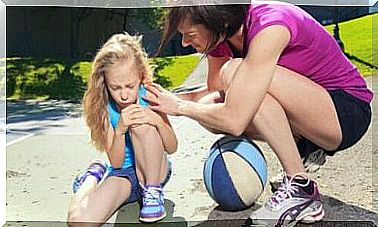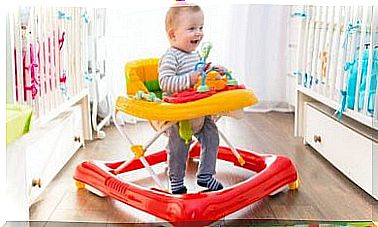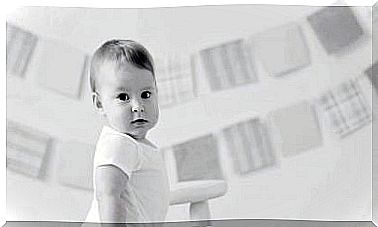When To Worry About Onychophagia?

Onychophagia can be something very common in children’s lives. However, it is necessary to treat in time to prevent the bad habit from continuing into adulthood.
Onychophagia consists of biting your nails constantly, for one reason or another. And it can cause health problems if it goes on without interruption. In other words, the loss of control over behavior is what indicates that something is not right.
When children bite their nails, even before they have grown up, we must pay attention and intervene. For this, the first thing we should note is that it may be the cause of this behavior in children.
Causes of Onychophagia in Children
- Stress.
- Anxiety.
- Boredom.
- Emotionally painful events, such as the death of a close person, fights between parents, uncertainties about the arrival of a new sibling, among others.
Consequences
Onychophagia can cause several health problems in children, to a greater or lesser extent. Below we will comment on the most common.
dental problems
- Abnormal teeth alignment. Due to a possible deformation in the dental arch. This implies a disorderly birth of permanent teeth or misalignment of existing ones. To solve the deformation it will be necessary to resort to orthodontics.
- Inflammation of the gums due to microorganisms present under the nails. Such agents can generate inflammatory infections such as gingivitis, periodontitis, among others.
- Onychophagia can cause pain when chewing food due to intensive jaw strain.
- Halitosis (bad breath) due to poor hygiene or oral infections.
digestive problems
- Depending on the intensity and duration of the habit, cases of intestinal obstruction may occur.
- Various types of opportunistic infections; that is, diseases that are caused by pathogens that are not normally a danger to the organism. Except in certain situations, such as when the immune system is or is weakened.
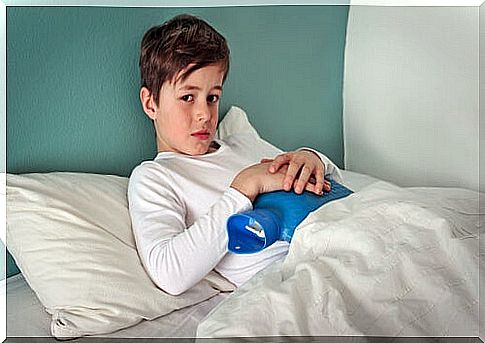
dermatological problems
- Bacterial infection of fingers. It will normally grow under the epidermis, due to saliva entering through the skin. As a result, inflammation occurs in the fingers and makes them painful (or difficult) to use.
- Depending on the severity, in the long term, onychophagia can deform the fingers and nail growth, and even cause a permanent loss of the nail.
- Ulcer infections that can persist even if the nails are pulled out, biting or bruising the skin in the area. This can cause easily infectious wounds due to the large amount of germs present in the saliva.
- Another problem, without a doubt, is the aesthetic one. Onychophagia is unpleasant to see and this has a negative social impact.
What can you do?
In addition to the fact that biting your nails is seen as unpleasant, swollen fingers, inflamed gums, and bad breath can affect (even if it doesn’t seem like) your child’s self-esteem.
Because? This is because their appearance generates rejection or mockery by other children. Therefore, in extreme cases, the child may be isolated or develop social anxiety disorders.
Onychophagia in children is a problem that usually requires pharmaceutical treatment but, due to its compulsive nature, it is necessary to seek help from a psychologist and seek to initiate positive therapy.
It is very important not to judge children and try to apply the professional’s advice consistently. If we stand firm, we can make this bad habit go away.
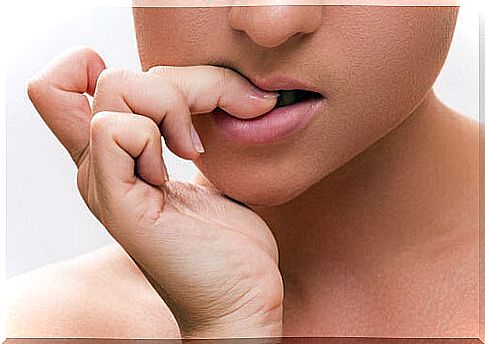
Even so, the treatment of onychophagia will prevent children from growing up with problems and developing addictions to tobacco, drugs or other things.
We must remember that these habits are no more than an outlet for accumulated tension and mismanagement of emotions and thoughts.
Don’t ignore your child and analyze your way of interacting with him. A seemingly innocuous habit, such as biting your nails, can be a warning sign that children need attention and better care.





